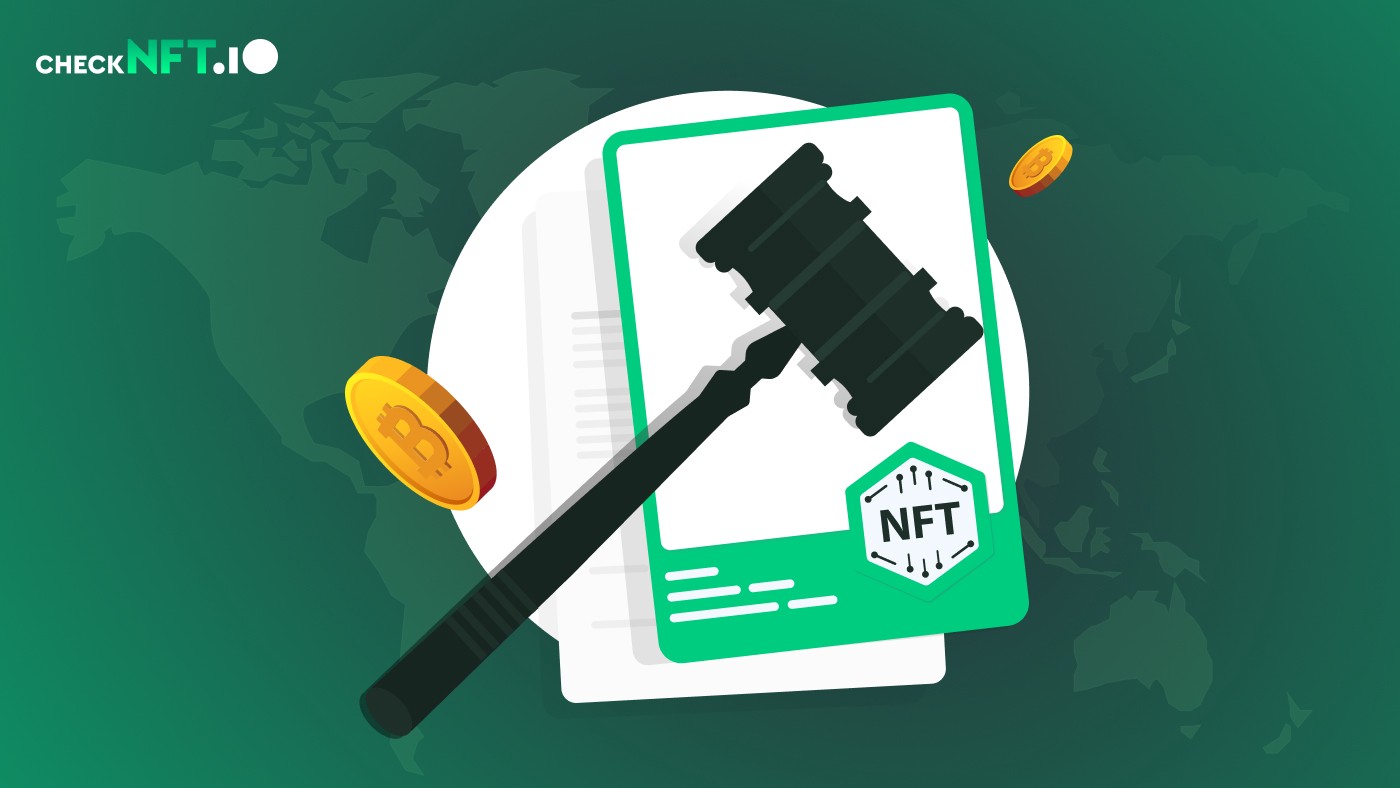While passing crypto laws, several countries are leaving out Non-Fungible Tokens (NFTs) from their crypto bills and laws. These include France, New Zealand, and Japan. So why would these countries leave out one of the main aspects of blockchain and cryptocurrency? Virtual currencies, NFTs, and cryptocurrencies such as Bitcoin and Ethereum are gaining tremendous momentum. They are doing this irrespective of their volatile nature, issues stemming from their carbon footprint, and the increasing regulatory problems. NFTs are files or tokens encrypted digitally for recording ownership of an item. This NFT could be a piece of art, a video of a memorable moment in sports activities, or more. The tokens are non-fungible. It implies that the assets they represent are unique, and one cannot easily exchange for a similar good at the same price. As we proceed further, we will explain the reason why some countries decided to ban cryptocurrency recently. We would also look at why others did not include NFTs in their crypto bills. 
If a government attempts to ban Crypto and NFTs, what are the possible outcomes?
Banning cryptocurrencies like Bitcoin, Ethereum and NFTs have a tremendous effect on a country's economy. When the government of a country decides to place a ban on the use of cryptocurrency and NFTs, then;
- One can no longer use cryptocurrency for transactions and payments.
- People will not be able to convert their local currency to purchase any crypto.
- And eventually, traders will not be able to cash out their cryptocurrency and NFTs.
Reasons Why Some Countries are not Including NFTs In their Crypto Bills
In 2021, cryptocurrency experienced a potential turnaround that propelled its market value to over $3 trillion. Not too long after, a new wave of cryptocurrency restrictions surfaced. The market value of cryptocurrencies and the value of near-term tokens suffered a massive blow following the outright banning by some celebrated nations. Russia is the latest country to join this new wave of restrictions on cryptocurrencies and NFTs. The Bank of Russia placed a total ban on the mining, trading, and use of cryptocurrency in the homeland. China, Egypt, Iraq, Qatar, Oman, Morocco, Algeria, Tunisia, Bangladesh, Kosovo, and 42 other countries completely banned cryptocurrency. They have passed restrictions to this effect, prohibiting crypto exchanges or limiting the ability of banks to engage with crypto and NFTs.
What are the factors propelling these decisions, and how might they affect the future of global crypto regulation?
Economic impact
It is not new that Bitcoin and other popular forms of cryptocurrencies frequently experience a crash leading to depreciation. Similar crashes occurred in 2021, 2020, and 2018 due to the volatile nature of NFTs. The cryptocurrency is a decentralized currency that operates without the support of governments and other financial institutions. It provides an opportunity for a broader medium for financial freedom. Nevertheless, they don't do this without being prone to price fluctuations brought about by investors' speculations and the media's effect. As a result, cryptocurrencies such as Tether are unaffected by decentralization because of their volatile nature. They are backed up with a fixed asset. Let's take El Salvador as a case study. They became the first country that would readily adopt the use of Bitcoin and NFTs as legal tender. Their main goal is to expand the financial inclusion and allow residents to save an annual commission on remittances. Still, only a minute part of businesses agreed to use Bitcoin for their transactions due to its volatility and the economic impact it could have.
Lack of Regulation
Updated legislation was necessary to define and govern cryptocurrencies' use. The lack of legal regulation by states and emphasis on individual users is one of the major selling points of Block-chain for some investors. Apart from this regulatory gap, the difficulty experienced in calculating tax liability of crypto and NFTs assets is a severe concern for governments.
Climate Impact
While being primarily viewed as a significant challenge by end-users, governments, too, noticed the detrimental effects of cryptocurrency and NFTs on climate. The central issue dwells in the crypto use of Blockchain and the dependency on the heavy usage of computer power. As one of the most extensive energy users, Bitcoin consumes 1,173 kilowatt-hours of energy per exchange. The mining of cryptocurrency and its transactions utilizes a tremendous amount of money energy yearly - almost equivalent to Norway's overall consumption. Apart from the amount of energy it requires, it is also associated with carbon emissions, which harm the climate. Moreover, Crypto and NFTs intensive energy also have a ripple effect on power grids, especially in developing countries.
Criminal Potential
For years, regulators have known the usefulness of cryptocurrency for laundering money and purchasing drugs online. Regardless, this has continued to prevail and shows little or no signs of abating. There is a massive probability that the unlawful use of cryptocurrency and NFTs will be more prevalent than the benefits they provide.
Conclusion
There is no established regulatory pass mark for cryptocurrency and NFTs. Countries like Japan, Australia, Russia, and Switzerland have created rules for regulating cryptocurrencies, while other countries like China, Indonesia, and Saudi Arabia have placed a total ban.
 cryptoknowmics.com
cryptoknowmics.com